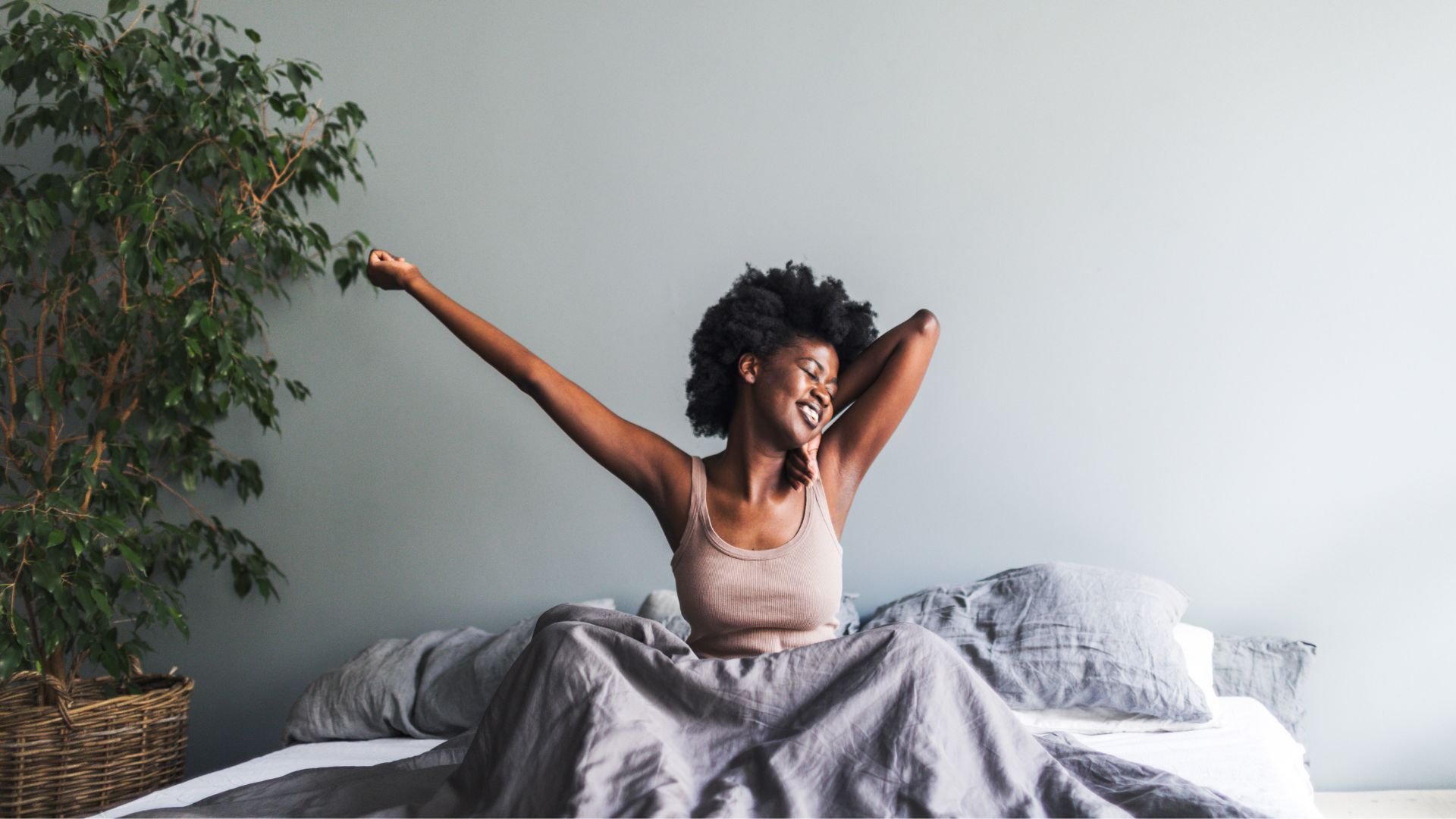Feel tired in the morning? Scientists have found a way to reduce fatigue before you even wake up
It's perfectly normal to feel tired in the morning, even if you've had a full 8 hours' sleep, but now researchers have found a way to put a spring in your step

Grace Walsh

The scientists looked at the effect of natural light on participants' sleep quality and waking times. They found that being exposed to sunlight before waking can have an energising effect on those who feel tired in the morning.
While we know that going for an early morning walk can boost energy levels, this trick doesn't require you to leave your bed. It also doesn't cost any money and only takes 20 minutes.
The team at the University of Osaka used light-shielding curtains and motorised closing devices to examine how natural light exposure can affect sleeping participants.
The participants slept under three conditions: natural light for 20 minutes before waking up, natural light from dawn until waking, and no natural light before waking.
Writing in the Journal of Building and Environment, the scientists revealed that those who slept in the first two conditions (natural light for 20 minutes before waking up and natural light from dawn until waking) were less sleepy than those not exposed to natural light at all before waking up.
Participants' sleepiness, alertness and fatigue were then measured using an electrocardiogram (ECG), an electroencephalogram (EEG), and a survey.
However, they also found that those who slept with natural light from dawn may have been overexposed, which can disrupt sleep. So, 20 minutes of sunlight before waking was ideal.
Sign up to our free daily email for the latest royal and entertainment news, interesting opinion, expert advice on styling and beauty trends, and no-nonsense guides to the health and wellness questions you want answered.
Sunlight in the morning has been found in other studies to suppress melatonin (the sleep hormone) and increase cortisol. While cortisol gets a bad name, we need this stress hormone to feel more alert.
One reason why sunlight first thing may help you feel more awake is that it increases levels of this hormone, known as the cortisol-awakening response. Not having enough cortisol has been previously linked with fatigue.
With the popularity of sunrise alarm clocks in recent years, we've seen artificial light devices become a must-have for learning how to sleep better. These devices simulate sunshine for a more natural wake-up call, and studies have found they have benefits.
But, there's nothing quite like the real thing if you feel tired in the morning, as simply turning over or moving positions can lessen the effect of these devices. They work as they are placed at eye-level and have a strong directional light, the researchers said.
"Any involuntary movement of the user, such as turning over or shifting positions in bed, may lead to fluctuations in light exposure during sleep, potentially causing instability."
Sunlight outside, especially in the upcoming summer months, is much more reliable - and free, the researchers note.
How to use sunlight to stop feeling tired in the morning
If you don't live in a city centre, where artificial light from streetlamps may keep you awake or disrupt your sleep, and you go to bed when it's already dark outside, then you might like to leave your curtains open at night.
However, as the researchers found, exposure to light for too long before waking up can have a negative effect. This is why devices like light-shielding curtains or a timer on your blinds could be the way forward.
In the study, the participants slept in a university lab designed to look like a bedroom, with all windows shaded apart from the one facing east. Light-shielding curtains with a motorised device slowly pulled back the curtains.
Though they are not exactly the same as the ones used in the study, you can buy devices that automatically open your curtains at pre-set times from places like Amazon.

Suitable even on heavy curtains (up to 18kg), this smart device links up to an app on your phone where you can set custom schedules. You can choose the time they open and close automatically, and the percentage they open, and you can control it with Alexa or Siri.
Other ways to feel less tired in the morning
- Create a better sleeping environment: As well as exposure to natural light 20 minutes before you wake up, it's a good idea to make sure your bedroom is at the right temperature (between 16 and 19.4 degrees Celsius (60-67°F), according to the Cleveland Clinic) and dark when you drift off.
- Get outside: If you can't manage 20 minutes of sunlight before you wake up, don't worry. There's plenty of evidence that getting outside for a walking workout or other mindful exercise has similar effects, reducing tiredness and fatigue.
- Avoid caffeine and exercise too close to bedtime: Caffeine and exercise both act as stimulants, raising your heart rate and getting you ready for activity, so they aren't the best for winding down and could be why you feel tired in the morning.
- Avoid alcohol late at night: It's best to stick to alcohol alternatives if you're looking for a late-night tipple. Alcohol is a sedative, so while it might be easier to fall asleep, sleep quality is disrupted.
- Prioritise magnesium-rich foods: Magnesium can reduce feelings of tiredness in the morning by improving the quality of your sleep and helping to deal with issues like insomnia and waking up too early, according to studies. You can take it as a supplement (but speak to your doctor first) or eat lots of foods rich in magnesium.

Kat Storr has been a digital journalist for over 15 years after starting her career at Sky News, where she covered everything from world events to royal babies and celebrity deaths. After going freelance eight years ago, she now focuses on women's health and fitness content, writing across a range of UK publications.
From perimenopause to the latest fitness trends, Kat loves researching and writing about it all. She's happy to give any fitness challenge a go and speaks to experts about wellbeing issues affecting people every day.
- Grace WalshHealth Channel Editor